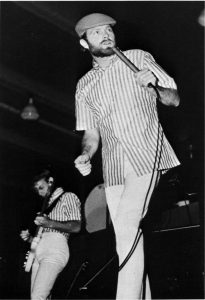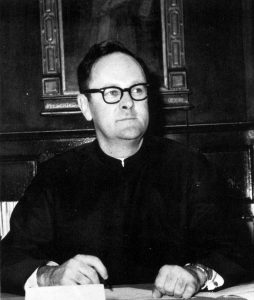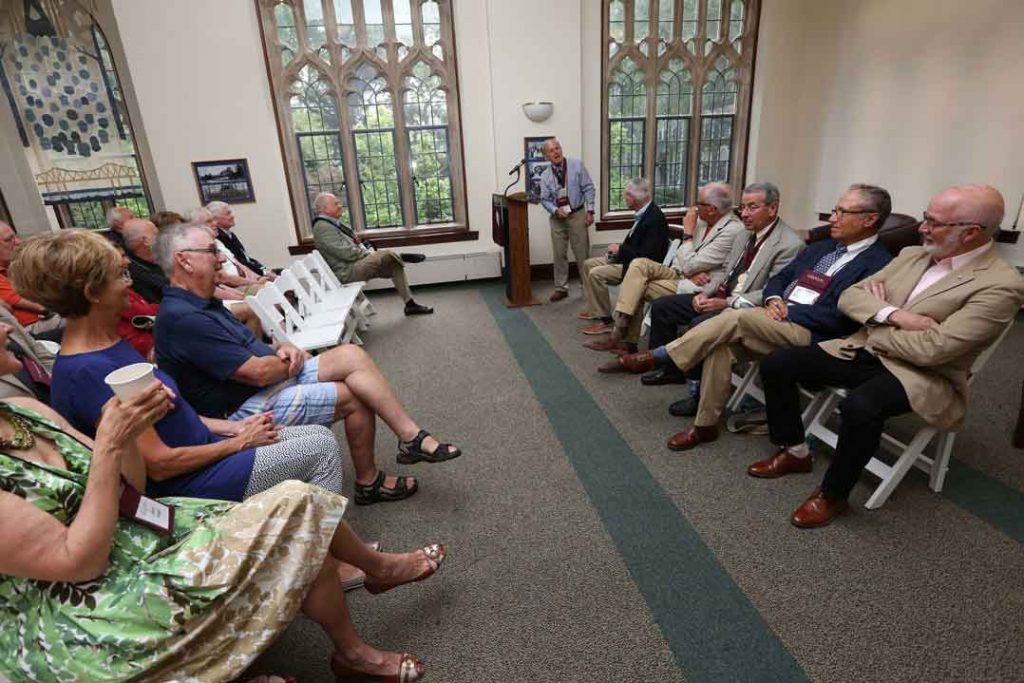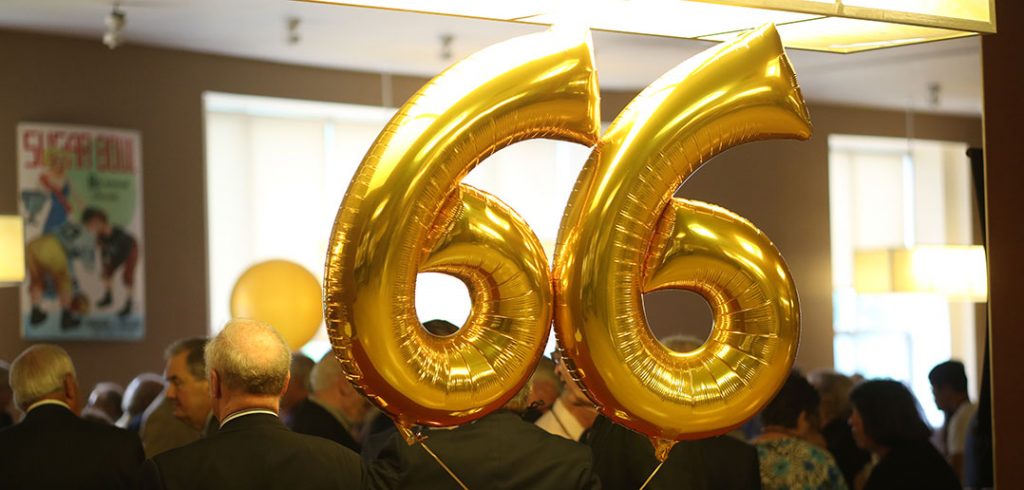It’s been more than 50 years since Bob Dylan first sang “The Times They Are A-Changin’.” That’s how most of us in the Class of 1966 felt about our youthful days at Fordham, smack-dab in the middle of a decade that would come to be known for its profound social changes. It’s a time we looked back on during our Golden Jubilee last summer, when we hosted a panel called “Then and Now.”
For the most part, we members of the Class of 1966 were sons of the middle class, eager and grateful for the opportunity to attend and live at a college for a full four years.
Once at Fordham, we realized that there was more in this world than we could ever learn, and we marveled at the speed of the news and new ideas. We lived through the Cuban Missile Crisis and the tragic assassination of JFK. We experienced the changes of Vatican II. We saw the rise of the Reverend Martin Luther King Jr.; Fordham’s LaFarge Society, with its focus on interracial justice; and the civil rights movement.

Fordham’s first all-female school, Thomas More College, opened its doors when we were sophomores—the same year that Fordham football was resurrected by an enterprising group of students. The Beach Boys, Tommy Makem and the Clancy Brothers, and Ray Charles rocked our concerts.
Outside of Fordham, the Berrigan brothers and the Vietnam War tested our social consciences, challenging us to examine what we considered moral. When our country called, many of us answered—bravely and proudly—yet realizing that violence was not the solution. The war claimed several of our classmates. Ignatius, a soldier himself before he founded the Society of Jesus, had gotten it right when he urged us to understand one another better, rather than fight.
The Legacy of Father McMahon

We were particularly inspired by George McMahon, S.J., who became the dean of Fordham College at Rose Hill in fall 1962. We were his first class. More than anyone else, Father McMahon shaped us and helped define our spirit. His warm and engaging personality endeared him to us, as it would to future decades of students, and he quickly became “Father Fordham.”
“Service,” he would say, “is the rent we pay for our time on earth.” It was a paraphrasing of what others had said before, but he made it a special part of our lives.
In 1991, on the occasion of our 25th reunion, members of the Class of 1966 paid tribute to Father Fordham by establishing an endowed scholarship in his name. We hope the McMahon, as it’s fondly called, will continue Father McMahon’s spirit of service.
A Jubilee Panel
This is the spirit that drew our class together and sent us out into the world. And it was that same spirit that motivated us to plan our panel reflecting on our Fordham experiences a half-century later. Fordham gave us the strength and direction to thrive and grow in a world that was—and still is—changing ever faster.
In putting together our panel, we called upon classmates who could help us understand and process this era of great social change we have lived through.
Our panelists were and are teachers and leaders in industry, commerce, and education. They have inspired younger men and women, guiding them into the best educational disciplines for their individual skills and enriching the lives of all they touched. This small group of people represented our class, and reflected on our era—just as the late Father McMahon had in times past.
- Tony Moore is a former Jesuit and longtime administrator at Georgetown University.
- John Murphy logged more than 1,400 hours of air combat during his time as a U.S. Air Force pilot. He now champions major environmental causes.
- Jim Mitchell, a Fordham track star turned Latin teacher and Nike Coach of the Year, took Bronxville High School’s women’s track team to victory at the national championships.
- Lenny Masucci is one of the original leaders of Teach for America.
- Fred Gruel is a former president of AAA New Jersey and the chair of the board of trustees at William Paterson University.
- Gerry Byrne, a veteran Marine Corps officer who served in Vietnam, is now vice chairman of Penske Media Corporation. He has been a staunch supporter for veterans, going so far as to participate in the Invictus Games for wounded warriors.

“Then and Now” at Jubilee 2016
More than 70 people attended our Saturday-morning panel last summer. Though we wish Father McMahon could have been there, Joseph M. McShane, S.J., president of Fordham, honored us by introducing the panel with an insightful look at Fordham’s 175-year history—and its promise.
Many of us will be returning again this year, and we look forward to celebrating together and welcoming the Class of 1967 to their 50th reunion. We hope the next 50 years will prove just as exciting, and that future Golden Rams will take the time to create these kinds of exciting reunion events that will renew their class’ unique bond.
—Warren T. Gregory, FCRH ’66, is a licensed master social worker. As a member of the Dean’s Council for the Fordham School of Professional and Continuing Studies, he works extensively with veterans completing their education at the University. In 1969 he was awarded the Bronze Star and the Air Combat Medal for his service in the U.S. Army during the Vietnam War. He earned his master’s degree from the University of Houston in 2009.
Learn more about this year’s reunions at Rose Hill and Lincoln Center!

